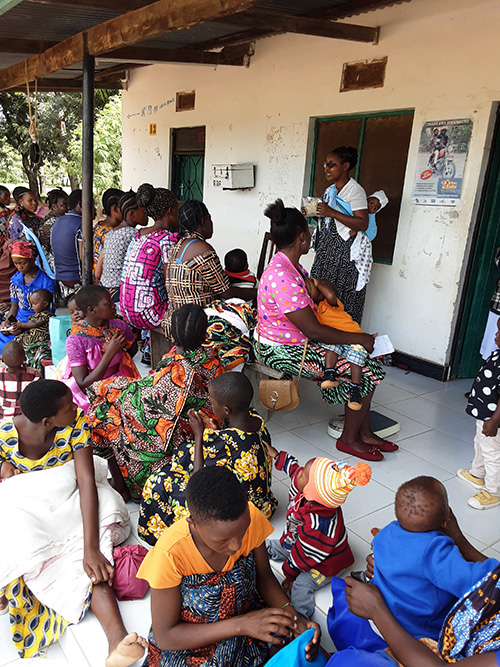Contact
Konstantinos Karantininis, Professor
Department of People and Society

Adela Alfred Mshanga, private entrepreneur, founder & Chief Executive Officer of Fanikisha Social Enterprise, Mwanza Tanzania.
What is your vision for a sustainable aquatic food system in Mwanza?
At Fanikisha we want to work with women in fisheries and make nutritious fish products. We produce smoked fish and process small fish from fisheries in Lake Victoria to nutritious fish powder. Products made from fish are very nutritious compared to many other foods. So, our vision is to make the community aware that aquatic food is important to the health, and we want our community to consume it. Africans have a lot of fish, but we don’t consume it. We try to break this gap so that our local communities start eating fish and fish products. The main food that we eat is maize flour, so if we fortify it with products like fish powder, it will be easier to improve health and tackle malnutrition. Then we go to schools to create awareness and give them access to the food. We also want to empower women working in fisheries to collaborate in reducing the post-harvest loss.

Adela Alfred Mshanga working for Fanikisha in Tanzania. Photo: Fanikisha
What kind of needs do you see to reach this vision?
We have a lot of needs because we are a startup that is growing as an organization. If there is a possibility to get assistance in capacity building it is good, but we also need funding to boost our organization from a very small scale. Today we are four in our organization.
How do you think multistakeholder networks should be organized in your community?
We need networking because is not easy for us, who are small, to attend and engage in in this kind of settings in the same way as the top actors like professors and directors. To have a link with the government but also show what you are doing in different platforms adds some credibility for your work
What do you see as your struggle to work for a sustainable aquatic food system in Mwanza?
We have some challenges especially when we look at resources like machinery and buildings, but also new technology like using new solar powered electric systems for drying fish. To improve productivity and quality of the products this kind of advanced technology can be helpful. When you process sardines or small fish to fish powder you need machinery. With advanced machinery capacity can grow. But we also need marketing. There is lack of awareness of the health benefits of aquatic food in our communities.
What do you take with you from this science policy lab?
I have understood that what I am doing is crucial not only to my community, but worldwide. We have seen in different reports that sub-Saharan Africa is very low in consuming aquatic food, and that malnutrition is high in our area. So, I'll continue doing aquatic food programs and process fish to nutritious products.
The interview was made during the Global Science-Policy Lab on Aquatic Food Systems in Brussels 3-4 March 2025 (SASi-SPi project funded by the European Union).
Konstantinos Karantininis, Professor
Department of People and Society